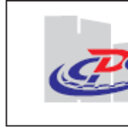Greek
Albanian
Arabic
Armenian
Azerbaijani
Belarusian
Bengali
Bosnian
Catalan
Czech
Danish
Deutsch
Dutch
English
Estonian
Finnish
Français
Greek
Haitian Creole
Hebrew
Hindi
Hungarian
Icelandic
Indonesian
Irish
Italian
Japanese
Korean
Latvian
Lithuanian
Macedonian
Mongolian
Norwegian
Persian
Polish
Portuguese
Romanian
Russian
Serbian
Slovak
Slovenian
Spanish
Swahili
Swedish
Turkish
Ukrainian
Vietnamese
Български
中文(简体)
中文(繁體)
Journal of Experimental and Clinical Cancer Research 2019-May
Μόνο εγγεγραμμένοι χρήστες μπορούν να μεταφράσουν άρθρα
Σύνδεση εγγραφή
Ο σύνδεσμος αποθηκεύεται στο πρόχειρο
RESULTS
We found that MSC under hypoxia condition (hypo-MSC) could promote proliferation of HCC cell lines and tumor growth in xenograft model. Hypoxia increased COX2 expression in MSC and promoted the secretion of prostaglandin E2 (PGE2), which then activated YAP in HCC cells and led to increased cell proliferation. Meanwhile, YAP activation enhanced lipogenesis in HCC cell lines by upregulating AKT/mTOR/SREBP1 pathway. Knockdown or overexpression of YAP significantly decreased or increased lipogenesis. Finally, EP4 was found to mediate the effects of hypo-MSC on YAP activation and lipogenesis of HCC cells.CONCLUSIONS
Hypo-MSC can promote HCC progression by activating YAP and the YAP mediated lipogenesis through COX2/PGE2/EP4 axis. The communication between MSC and cancer cells may be a potential therapeutic target for inhibiting cancer growth.Η πληρέστερη βάση δεδομένων φαρμακευτικών βοτάνων που υποστηρίζεται από την επιστήμη
- Λειτουργεί σε 55 γλώσσες
- Βοτανικές θεραπείες που υποστηρίζονται από την επιστήμη
- Αναγνώριση βοτάνων με εικόνα
- Διαδραστικός χάρτης GPS - ετικέτα βότανα στην τοποθεσία (σύντομα)
- Διαβάστε επιστημονικές δημοσιεύσεις που σχετίζονται με την αναζήτησή σας
- Αναζήτηση φαρμακευτικών βοτάνων με τα αποτελέσματά τους
- Οργανώστε τα ενδιαφέροντά σας και μείνετε ενημερωμένοι με την έρευνα ειδήσεων, τις κλινικές δοκιμές και τα διπλώματα ευρεσιτεχνίας
Πληκτρολογήστε ένα σύμπτωμα ή μια ασθένεια και διαβάστε για βότανα που μπορεί να βοηθήσουν, πληκτρολογήστε ένα βότανο και δείτε ασθένειες και συμπτώματα κατά των οποίων χρησιμοποιείται.
* Όλες οι πληροφορίες βασίζονται σε δημοσιευμένη επιστημονική έρευνα



